Malcolm Turnbull, Edouard Philippe pay homage to Australian troops at Villers-Bretonneux
Malcolm Turnbull says while Australians are “hardly militaristic” it was vital to honour our troops who fought at Villers Bretonneux.
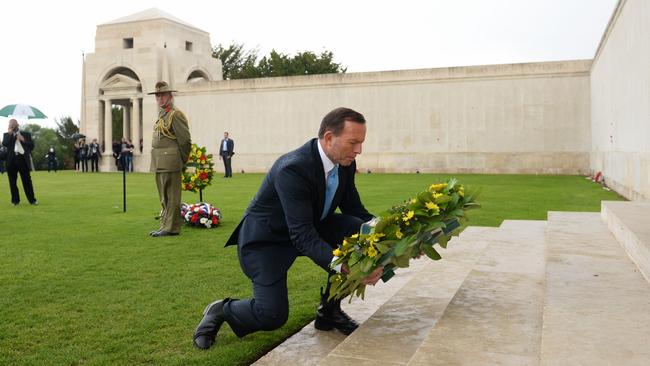
The Australian troops 100 years ago could never have imagined this event. Inside a specially constructed temporary tent on the high ground occupied by the Australian National Memorial the Sir John Monash Centre was formally opened last evening.
The unity between the French people and the Australians that Villers-Bretonneux forever invokes was represented anew with prime ministers Malcolm Turnbull and Edouard Philippe presiding and then inspecting the centre.
The French leader offered inspirational homage to the Australians: “We will never forget that 100 years ago a young and brave nation on the other side of the world made history by writing our history.
“A foreign country. A faraway country. A faraway, foreign country which they had defended, inch by inch, in Fromelles in the Nord region, in Bullecourt in Pas-de-Calais and of course here in Villers-Bretonneux. As if it were their own country. And it is (is in emphasis) their own country.”
Mr Turnbull said while Australians are “never triumphant” and “hardly militaristic” it was vital to honour the “triumphs of arms won by the Australian forces in the midst of all the horrors of the Great War.”
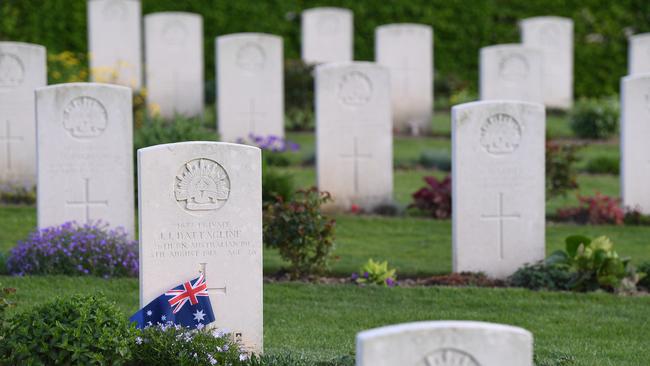
He described the victory at Villers-Bretonneux as “momentous — the first of many in 1918” and recalled that Australia’s Commander, Sir John Monash later branded it as “the real turning point of the war.”
Reminding the audience that barely a household in Australia was not “deeply and personally affected by the war” Mr Turnbull said the Monash Centre was an expression of “gratitude” for past generations who fought and for the current generation who fight for “our values
and our interests.”
The audience included nine families who were direct descendants of Australians who fought on the Western Front. The driving force behind the centre, former prime minister, Tony Abbott, sat in the front row and was accorded a tribute from Mr Turnbull, who said his predecessor had always advocated for greater historical recognition for the “deeds, service and sacrifice” for Australians on the Western Front.
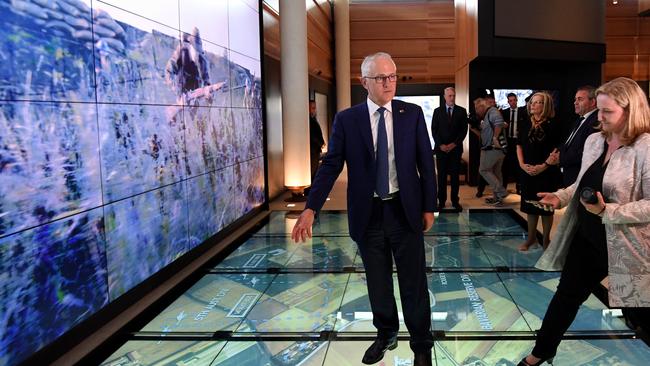
The event was attended by Defence minister, Marise Payne, Veterans’ Affairs minister, Darren Chester, the Chief of the Defence Force, Mark Binskin and Warren Snowden MP, representing ALP leader, Bill Shorten.
Mr Philippe began with a quote from ‘All Quiet on the Western Front’ by Erich Maria Remarque referring to a German soldier: “He is entirely alone now with his little life of nineteen years and cries because it leaves him.”
Offering a remarkable tribute to Australian commander, John Monash, he said that at a decisive moment in the battle for France “a meticulous, wise and dogged man took centre stage, an engineer, the son of Prussian Jewish immigrants who had worked hard to pay for his
studies.”
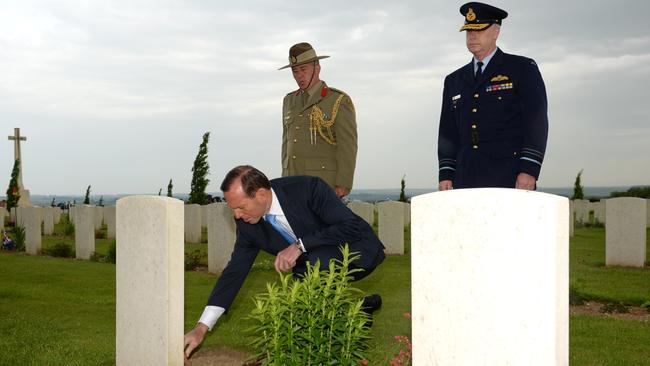
The French prime minister said the task of the current generation, again and again, was to tell the stories and show the daily lives of troops at the front — hence the relevance of the Monash Centre.
In a quivering voice Mr Turnbull said he and wife, Lucy, had stopped at the grave of Lucy’s great uncle, Roger Forrest Hughes, a young doctor from St Vincent’s hospital in Sydney who enlisted in 1916 and died at the age of 26 in the arms of his brother having been hit by a
shell on the Somme.
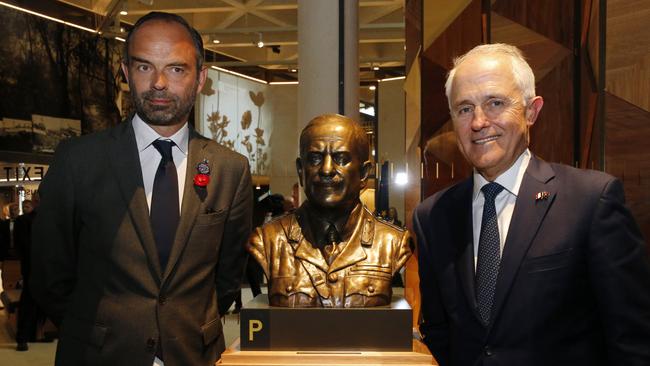
The event began with a didgeridoo performance by Dr David Dahwurr Hudson who presented his didgeridoo to Mr Turnbull as a gift to the Monash Centre. It finished with the children’s choir from Villers-Bretonneux performing Nous n’oublierons jamais (We Will Never
Forget) and Waltzing Matilda along with the national anthems of France
and Australia.
Mr Turnbull said that in the midst of the stone, steel and glass of the Villers-Bretonneux monument and Monash Centre the best way to honour the diggers of 1918 was to support the servicemen and women and the veterans and families of today.




